You might have heard the term “Metaverse” before, a word that is increasingly synonymous with one social platform in particular. But, a metaverse is not exclusive to any one company. It is the concept of a digital space that parallels real-life—a place where the virtual version of you can make money, transact, socialize, and play with others.
The development of cutting-edge gaming mechanics, the cryptocurrency craze, and advancements in virtual reality and augmented reality (VR/AR) technologies were the three key ingredients to unlocking massive hype surrounding the gaming metaverse. Let’s take a deeper look at how the gaming metaverse works, its pioneers, popular games, and what you’ll need to make the most of this ultimate social gaming experience.
What is a Metaverse?
A metaverse is a vision for virtual social environments that are interconnected with one another. Technologies like blockchain, non-fungible tokens (NFTs), video games, AI, and VR/AR support the metaverse and enable its users to engage with each other in meaningful ways, despite not being face-to-face.
Facebook founder and CEO, Mark Zuckerberg, believes that the metaverse will replace today’s social media platforms and offer a solution that is even more visceral and lifelike thanks to virtual reality (VR) and augmented reality (AR) technologies.
In the context of gaming, a metaverse allows users to explore a virtual world, walk around and interact with others as their in-game characters, or avatars. The aim of the metaverse is to eventually mesh together all online worlds, allowing people to move between them as if they were a single entity.
For more information: What is the Metaverse, Exactly?
Why is it the Ultimate Social Gaming Experience?
The gaming metaverse connects players on a deeper level than any video game chat experience ever could. Users don’t see the metaverse as a form of entertainment or a way to keep in touch with friends, they see it as a true extension of their lives.
For more information: How the Game Industry is Charging into the Metaverse
Pioneers of the Gaming Metaverse
From globally recognized organizations to new studios on the block, gaming companies are now thinking “metaverse” first when developing their business strategies. Let’s take a look at the five companies that beat the gold rush to the latest trend in social gaming.
Bunch

Originally a group video chat app for gamers, Bunch has grown from simply an optional social layer for players to add to their gaming experience to an expansive metaverse that nurtures engagement. Bunch pioneered the idea that the metaverse will play a larger role both in and outside of gaming than simply bringing people together.
It is Bunch’s belief that the reach of the metaverse will span so wide and become ingratiated in our everyday lives that even if users enter playing a video game, they’ll have the ability to move through different applications, companies, and platform walls during their experience. The app has open-ended experiences, similar to Discord, where players can party on Bunch and then move between their favorite games outside the app.
Bunch is uniquely positioned to deliver compelling value to gamers and developers alike by creating an integrated metaverse for gaming that also has a spatial environment, where players embody 3D avatars as they come together to explore, transact, and socialize. The Bunch metaverse features a decentralized economy (De/DeFi) that utilizes blockchain technology where players actually own their in-game assets and can leverage them to facilitate extensible utility.
Epic Games
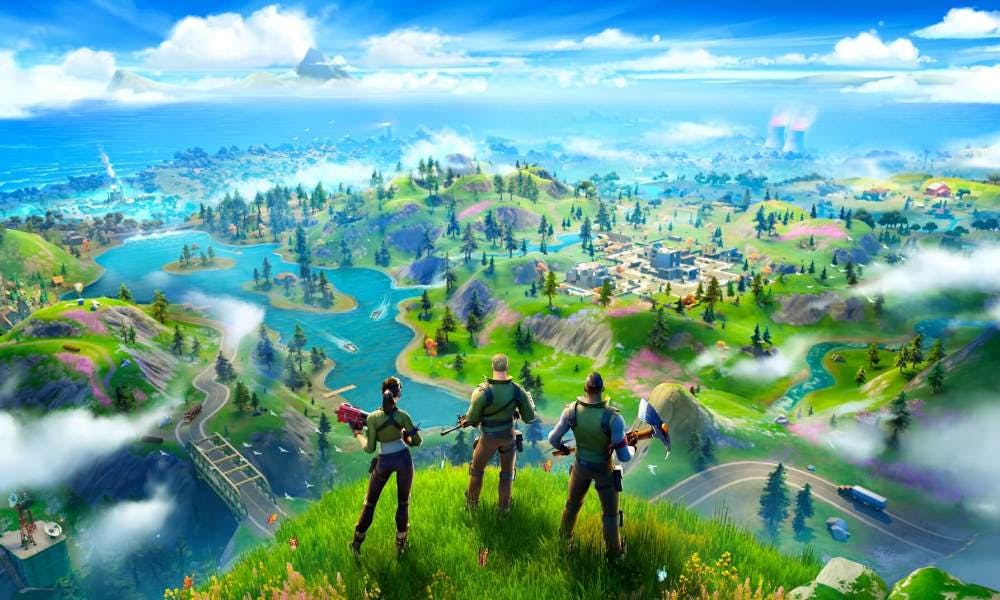
The valuation of Epic Games rose to $31.5 billion following $2 billion in funding from Sony and the owner of The Lego Group, KIRKBI, to further develop its metaverse. Even before securing additional funding, Epic Games has been a strong advocate of the metaverse and pioneered successful virtual events within Fortnite. While many of these events are marketing initiatives to exhibit Epic’s technological prowess, they also prove consumer interest in using virtual worlds for real-life activities. Epic’s massive user base allows it to test new experiences and develop a mass appeal to the offerings of its metaverse.
However, this deal does establish Epic as an unstoppable vanguard of the metaverse development, with its partners improving Epic’s abilities to expand into diverse age groups and incorporate a variety of experiences within its metaverse. With help from Lego, Epic plans to add children into its metaverse ecosystem—a big move, as safety in the metaverse is a critical concern. The success of this platform could set the standards for child-centric metaverse experiences in the future, and failure to create a safe, toxicity-free offering will impact Epic’s metaverse ambitions and reputation.
Roblox
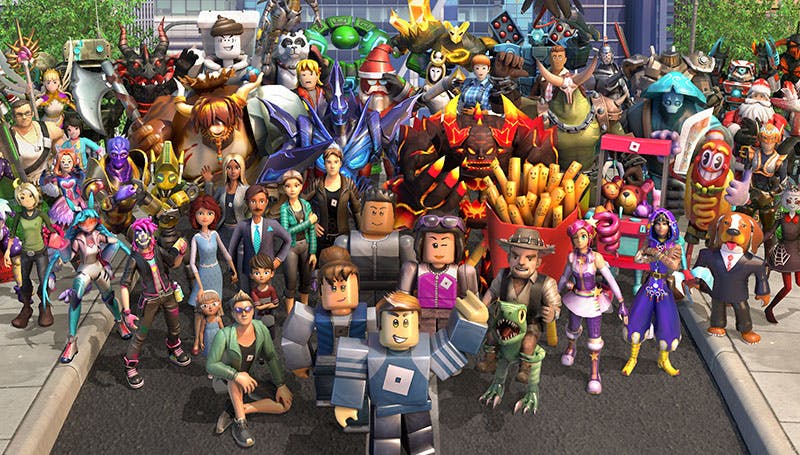
Roblox is one of the most successful players in the gaming metaverse space. The platform boasts 47 million daily active users, 9.5 million of which are considered “developers” who build out worlds and games.
Roblox has taken a unique stance on the integration of AR/VR technologies with the metaverse: they don’t think they’re necessary. Chief Business Officer of Roblox, Craig Donato says, “When you read a lot about metaverses in the press, I think we naturally gravitate toward immersion being the problem. Like, ‘Oh, we need VR and AR, and that’s when it’s going to really take hold.’ I think that we’ve already kind of hit the tipping point for immersion. What I would say, though, is that there’s an incredible amount of innovation that still needs to occur on the social side.”
Similar to Epic Games, Roblox is focused on building an immersive world within existing gaming tech, rather than investing heavily in advancements. However, Roblox differs from Epic in a major way—more than half of its user base are children. While moderation still presents occasional challenges, advanced moderation technology, and over 4,000 human moderators have enabled Roblox to create a safe way to introduce younger users to the metaverse.
What are Play-to-Earn (P2E) Games?
Play-to-Earn (P2E) games are early-stage metaverse platforms that add innovative economic models that allow players to earn a steady income for playing. These games are usually powered by blockchain technology and offer rewards or incentives to users based on their platform activity or related in-game achievements. As users earn cryptocurrency based on their gaming activities, they can exchange them for fiat or other assets on exchanges.
For more information: Play-to-Earn Games: How Do They Work?
Top 5 Most Popular Play-to-Earn Games
Let’s take a look at some of the ground-breaking P2E games in the metaverse space today.
Axie Infinity
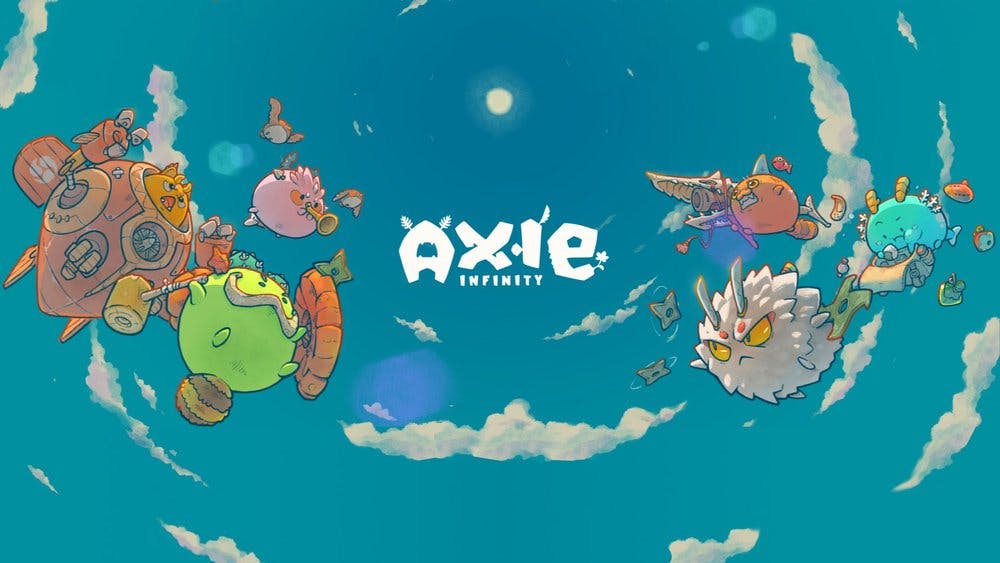
Axie Infinity is a metaverse game where players compete with each other by pitting their pets called “Axies” in battles. The game is patterned after the hit franchise Pokemon and follows an open-ended digital pet universe storyline that allows players to perform individual and community quests in order to earn more rewards.
These rewards come in the form of Smooth Love Potion (SLP) tokens, which can be converted to cash or other tokens or be redeemed within the game. Axie Infinity also has a native governance crypto token called AXS, which warrants holders the opportunity to participate in the platform’s voting functions that determine the direction of game development, including important protocol parameters.
Alien Worlds
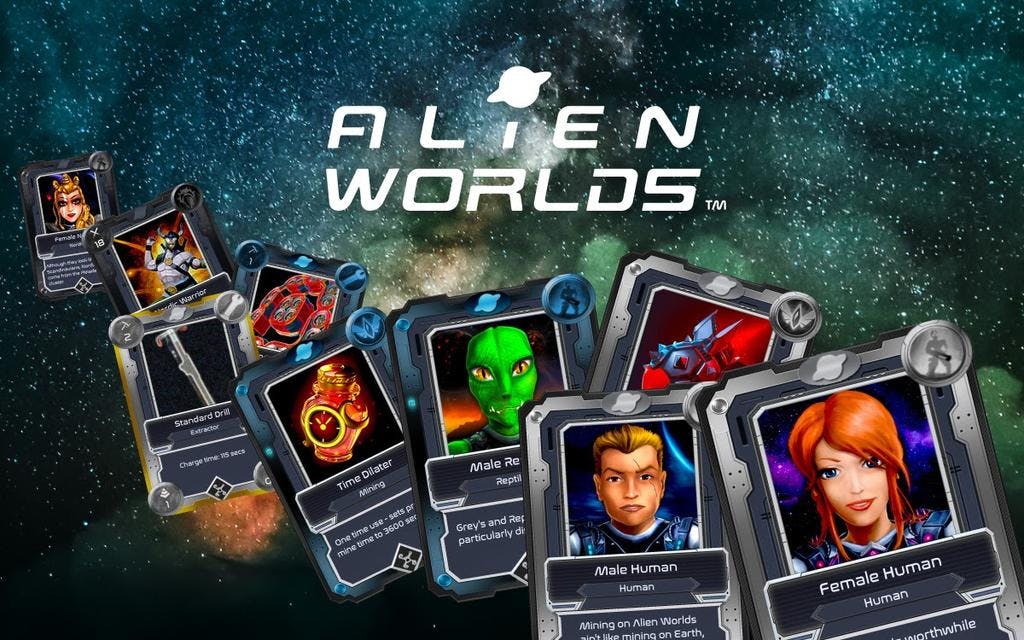
Alien Worlds is a game powered by NFTs that consists of seven planets intended to recreate a digital version of the Earth with a different economy backed by its native Trillium (TLM) game tokens. NFTs allow users to own and trade any asset they can find in the virtual world. Players have leeway to purchase and assemble NFTs according to their strategy and can either mine TLM, compete with other players, or complete in-game quests to earn them. The game also has its own decentralized finance features where TLM players can stake their holdings to one or more planets in-game to become a planetary councilor.
Farmers World
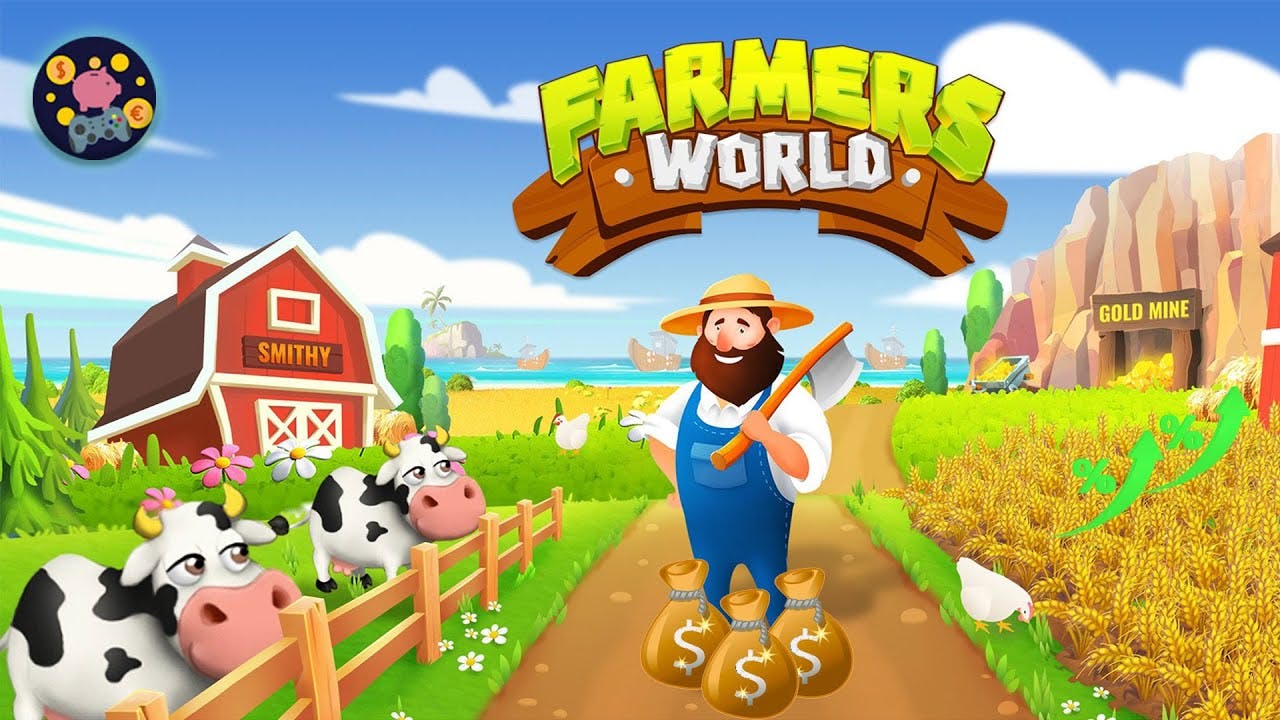
Farmers World is one of the fastest-growing blockchain-based games. Closely resembling one of the hit games on Facebook, Farmville, the objective of Farmers World is to enable players to cultivate their digital farms, take care of their plants, manage their own livestock, and conduct other farming-related activities. Players can also participate in player-versus-player (PvP) game modes by visiting other digital farms and competing with them to earn more in-game resources. The players can also purchase farming equipment for better efficiency, as well as other in-game resources like virtual lands to build or expand their farms.
Plants vs Undead

Plant vs Undead (PvU) is a multiplayer tower defense with a storyline patterned after the widely successful Plants vs Zombies. Users can own unique NFT-backed digital plants and other in-game assets, which they can use to play against others or participate in quests.
All players start the game with a mother tree and six plants, all of which are neither unique nor backed by NFTs. Players receive in-game tokens which they can spend to buy new seeds or exchange for other cryptocurrencies. Plants and seeds can all be sold or bought within the platform’s internal marketplace.
My Neighbor Alice

My Neighbor Alice is a multiplayer game that revolves around the character Alice in a virtual world similar to Animal Crossing, which allows users to own virtual islands, collect in-game items, and socialize with others. The game also has DeFi elements as users can earn rewards by farming on their lands and completing tasks. These rewards come in the form of ALICE, an ERC-20 token, which can be spent on other in-game assets or converted into fiat and other cryptocurrencies. The game’s asset-backed NFTs consist of houses, plants, animals, lands, and virtually any other item in the game, which can be bought, grown, sold, or rented to other players.
What Do You Need To Play A Metaverse Game?
Being a social person helps, but it isn’t required to play a metaverse game. However, there are a few prerequisites players should be prepared to meet in order to make the most of their time in the virtual environment.
- Internet: Fast and smooth internet creates a seamless experience in the metaverse, which can be demanding on your bandwidth.
- Blockchain Wallet: In order to buy, earn, or sell tokens you earn in the metaverse, you will need a blockchain wallet.
- VR Headset: A VR headset is a device you wear on your head and over your eyes to immerse yourself into the metaverse. It can be a standalone headset like Oculus Quest or a device that uses your smartphone or PC.
For more information: Gaming in Metaverse—What to Expect
The Future of Metaverse Gaming
The gaming metaverse is a highly social experience because it blurs the line between the physical and virtual worlds. It is an expansive and encompassing concept that could open up the real world to infinite possibilities.
Blockchain gaming appears to create an exciting way to onboard new users as we build this collective digital universe. Despite the plethora of P2E games that already exist, more projects are still expected to launch in the future as even more innovative gaming models arise.
With that being said, history would dictate that many of these games are expected to die and fade into oblivion while the best ones will remain and grow to highs never seen in the gaming industry. The only thing we can do now is to wait and see.
For more information: The Future of the Metaverse: What 2022 Has in Store for the Immersive Digital World
